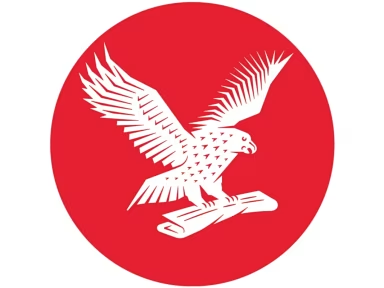Shares advanced in Asia on Monday, a day ahead of U.S. President Donald Trump’s deadline for imposing higher tariffs on goods imported from China.
The Hang Seng in Hong Kong edged 0.2% higher to 24,908.37, while the Shanghai Composite index gained 0.5% to 3,653.50.
Triple digit tariffs imposed by Trump and Beijing were paused for 90 days in May to allow time for talks.
Tuesday is the deadline for extending that truce. The last round of negotiations, held last month in Stockholm, ended without a clear word from Trump on whether the deadline would be extended for another 90 days.
Elsewhere in Asia, Australia's S&P/ASX 200 rose 0.3% to 8,831.40, while the Kospi in South Korea was nearly unchanged, at 3,210.76.
On Friday, the S&P 500 rose 0.8% to 6,389.45, just shy of its record high. The Dow Jones Industrial Average added 0.5% to 44,175.61, and the Nasdaq rose 1% to finish at 21,450.02.
Technology companies, with their hefty stock values, did much of the heavy lifting for the market. Nvidia rose 1.1% and Apple gained 4.2%.
Gilead Sciences jumped 8.3% for one of the market's biggest gains after reporting financial results that easily beat analysts' forecasts, while also raising its earnings forecast for the year. Expedia Group rose 4.1% after also reporting encouraging financial results.
They are among the final big batch of companies within the S&P 500 to report mostly strong financial results for the second quarter. Still, many have warned that current tariffs could cut into their profits.
Elsewhere in the market, entertainment giant Paramount Skydance slid 10.5% a day after the company was created by the closing of an $8 billion merger of Skydance and Paramount. Shares in rival Warner Bros. Discovery sank 8%.
Investors will get more insight this week on U.S. inflation at both the consumer and wholesale levels and on retail sales.
Trump’s trade war and its potential impact on the U.S. economy and on the Federal Reserve’s interest rate policy are a focus after the U.S. began imposing higher import taxes on dozens of countries last Thursday.
The Fed’s last decision to hold interest rates steady included two votes to lower interest rates. Its next meeting is in September, and Wall Street is overwhelmingly betting that the central bank will cut interest rates by a quarter of a percentage point after signals have pointed to a weaking of the economy.
Both are key concerns for the Fed, which has been trying to cool inflation down to its target rate of 2% while also fulfilling its “full employment” mandate.
Lower interest rates can give the economy and investment prices a boost, though the downside is that they can also push inflation higher. Concerns about inflation reheating could be overshadowed by worries about a weakening employment market.
In other dealings early Monday, U.S. benchmark crude oil shed 38 cents to $63.50 per barrel. Brent crude, the international standard, declined 31 cents to $66.28 per barrel.
The U.S. dollar slipped to 147.46 Japanese yen from 147.62 yen. The euro rose to $1.1673 from $1.1650.
Markets in Japan and Thailand were closed for holidays.
This article was written by Elaine Kurtenbach from The Independent and was legally licensed through the DiveMarketplace by Industry Dive. Please direct all licensing questions to legal@industrydive.com.

